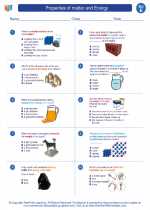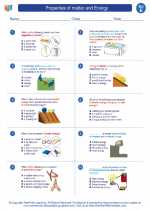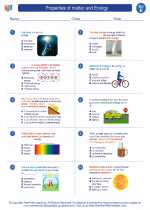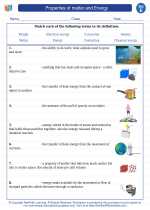Properties of matter and Energy -> electrons
Electrons
Electrons are subatomic particles that orbit the nucleus of an atom. They have a negative charge and are essential in the formation of chemical bonds and the flow of electricity.
Structure of an Atom
Atoms consist of a nucleus composed of protons and neutrons, surrounded by electrons orbiting in specific energy levels or shells. The number of protons in the nucleus determines the element, while the number of electrons determines the atom's charge.
Properties of Electrons
- Charge: Electrons have a negative charge.
- Mass: The mass of an electron is approximately 1/1836th of the mass of a proton.
- Location: Electrons are located in specific energy levels around the nucleus.
- Movement: Electrons move in orbitals and can transition between energy levels by absorbing or releasing energy.
Role in Chemical Reactions
Electrons are involved in chemical reactions as they are responsible for the formation of chemical bonds between atoms. Atoms can gain, lose, or share electrons to achieve a stable configuration, leading to the formation of molecules and compounds.
Electricity and Electrons
When electrons flow through a conductor, they create an electric current. This movement of electrons is the basis for the generation and transmission of electricity in various devices and systems.
Study Guide:
- Define an electron and its charge.
- Explain the structure of an atom and the location of electrons.
- Discuss the role of electrons in chemical reactions and the formation of chemical bonds.
- Describe the relationship between electrons and electricity.
- Give examples of how electrons are utilized in everyday devices.
◂Science Worksheets and Study Guides Fifth Grade. Properties of matter and Energy

 Worksheet/Answer key
Worksheet/Answer key
 Worksheet/Answer key
Worksheet/Answer key
 Worksheet/Answer key
Worksheet/Answer key
 Vocabulary/Answer key
Vocabulary/Answer key
 Vocabulary/Answer key
Vocabulary/Answer key
